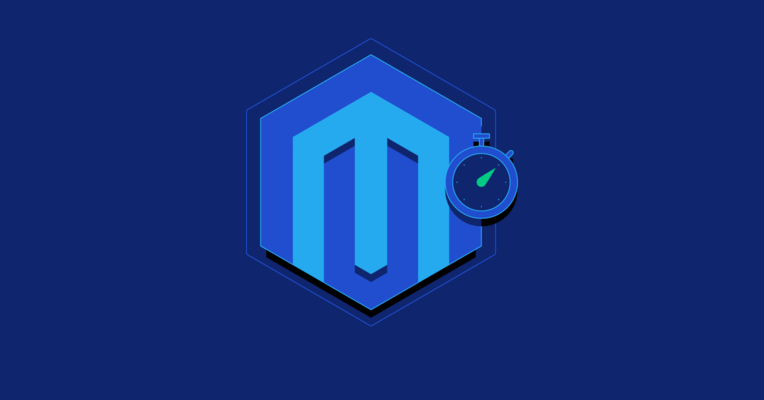
Hire Magento Developers
Hire the Top 3% of Freelance Magento Developers
Hire Magento (Adobe Commerce) developers, on demand. Top companies and startups choose Magento developers from Toptal for custom theme development, extension integration, performance optimization, scalable e-commerce solutions, and more.
No-Risk Trial, Pay Only If Satisfied.
Hire Freelance Magento Developers
Daniel Cuevas Zamora
Daniel is a senior certified Magento developer who works from home for several international clients. He also has experience working with Laravel and Zend frameworks and some JavaScript frameworks such as jQuery, Prototype, and Backbone.
Show MoreGaston Lozano
Gaston is a certified Magento developer with more than five years of experience in the platform. As a full-stack developer with insatiable curiosity, he enjoys working with people and solving problems. Gaston has excellent communication skills that enable him to translate client requirements and concerns into fully operational web applications.
Show MoreMatias Orlando
Matias is a certified Magento developer who primarily works with Magento (1 and 2) at the moment. He's worked with clients from Europe, the US, and Australia. Matias specializes in data management and has worked with large catalogs from different sources.
Show MoreDhara Bhatti
Dhara is a 5x Certified Magento 2 Developer with a decade of web development expertise. She has built diverse Magento 2 websites for over 20 clients, alongside projects in Shopify, Laravel, React, React Native, PHP, Node.js, and more. Always ready to assist developers and clients with technical challenges, Dhara seeks projects that expand her skills and knowledge. She's a full-stack expert dedicated to impactful solutions.
Show MoreMykhailo Korovkin
Michael has over 13 years of experience building web applications based on different frameworks, including six years as a certified eCommerce professional specializing in Magento development. He has gained substantial experience working with leading companies and clients worldwide in all kinds of teams, including technical leadership positions. Michael focuses on meeting high professional standards and providing solid software and services.
Show MoreDmitrijs Gallamovs
Dmitrij is a seasoned Magento developer skilled in managing AWS server setups, developing microservices, and streamlining CI/CD pipelines. He specializes in back- and front-end development, particularly within Magento, and has integrated various systems such as PIM, ERP, and CRM. He leads development processes and documentation, ensuring best practices and client satisfaction. With Adobe Certified Expert and Professional certifications, Dmitrij brings deep knowledge of Magento architecture.
Show MorePiyush Dankhra
Piyush is a Magento Certified Expert with 12+ years of experience and a member of the Magento Front-End Developer and Business Practitioner Exam Creation Team. He has in-depth expertise in Magento Enterprise, B2B features, Hyva theme development, and custom extensions, with project experience across fashion, jewelry, auto parts, cosmetics, and manufacturing industries.
Show MoreAnthony Grutter
Anthony is a full-stack developer twice certified in his specialty, Magento technologies. He is an expert integrator of eCommerce solutions, including complex situation analysis, multi-websites, responsive design, and Magento best practices. He has 6 years of Magento programming experience building websites and extensions.
Show MoreKyrylo Kostiukov
Kyrylo has experience in business intelligence (BI), data analytics, and machine learning projects for Magento merchants. He is the author of an extension for the integration of Magento with Power BI who prefers data-related projects and offers Power BI reports and dashboards development services, such as BI reporting, forecasting, and embedded analytics. Kyrylo has a background in business management and statistics to support companies in data analytics and KPI development.
Show MoreDamian Zamojski
Damian is a software developer who specializes in web applications in PHP and Magento platforms. He has seven years of professional experience creating software for Magento platforms based on his clients' requirements. Damian is highly proficient with Magento x1 and x2.
Show MoreJanusz Paśkiewicz
Janusz is a senior and lead web developer with a Magento 2 expert certification and more than a decade of professional experience. He is a quick learner with a flexible and enthusiastic personality and can work on his initiative or in a team. Janusz is always hungry to learn more and loves challenges. Currently, he is focused on the Magento platform.
Show MoreDiscover More Magento Developers in the Toptal Network
Start HiringA Hiring Guide
Guide to Hiring a Great Magento Developer
The popular Adobe Commerce (Magento) platform provides full site control and allows unlimited space for growth. But without dedicated professional developers, it’s all too easy to leave an e-commerce site plagued by suboptimal performance, open to security risks, or, at worst, broken. This hiring guide profiles important differences between versions, identifies key requirements for candidates, and provides technical interview questions that every worthwhile Magento specialist should be capable of answering.
Read Hiring GuideMagento Hiring Resources
... allows corporations to quickly assemble teams that have the right skills for specific projects.

Despite accelerating demand for coders, Toptal prides itself on almost Ivy League-level vetting.









How to Hire Dedicated Magento Developers Through Toptal
Talk to One of Our Client Advisors
Work With Hand-selected Talent
The Right Fit, Guaranteed
EXCEPTIONAL TALENT
How We Source the Top 3% of Magento Developers
Our name “Toptal” comes from Top Talent—meaning we constantly strive to find and work with the best from around the world. Our rigorous screening process identifies experts in their domains who have passion and drive.
Of the thousands of applications Toptal sees each month, typically fewer than 3% are accepted.
Toptal Magento Case Studies
Discover how our Magento developers help the world’s top companies drive innovation at scale.

Toptal powers Magento integration for Hearst’s Harper’s Bazaar, enhancing e-commerce operations.
Challenge: The Hearst Corporation, a conglomerate with multiple influential brands, sought to elevate and optimize an existing e-commerce site, Harper’s ShopBAZAAR, a vendor platform offering a custom shopping experience for readers. To achieve this, Hearst needed a team to implement a robust and seamless integration of various vendor management systems.
Solution: Toptal’s experts developed a Magento Shopify integration that enabled thousands of external vendors to manage their inventory, refunds, and products through their own Shopify account, seamlessly working on Hearst’s Magento site.
Impact: With the new system, individual vendors can now manage all their products in real time. This allows for better inventory management, adding more products, and faster vendor onboarding, enhancing the overall client and vendor experience. The new site enables growth by providing the foundational structure for a strategic expansion opportunity. Hearst plans to use the Magento integration the team created to allow audience sharing and cross-selling of products between its brands, opening up new avenues for sales.
- Magento
- Web Development
- Project Management Consulting
- QA Testing
- E-commerce Development
Mahendra Durai
SVP & CTO Hearst
Capabilities of Magento Developers
Toptal’s certified Magento 2 developers build and customize robust e-commerce platforms, leveraging the platform’s architecture, modules, and API to create scalable, secure online stores with custom features, seamless integrations, and optimal performance in high-traffic environments.
Magento Theme Customization
Extension Development and Integration
Performance Optimization
Payment Gateway Integration
Custom Checkout Process
Third-Party Service Integration
SEO Optimization
Store Migration and Data Transfer
Security Enhancements and Compliance
Managing Product Catalog and Inventory
Find the Right Talent for Every Project
Certified Magento Developers
Dedicated Magento Developers
Offshore Magento Developers
Remote Magento Developers
FAQs
How much does it cost to hire a Magento developer?
The cost associated with hiring a Magento developer depends on various factors, including preferred talent location, complexity and size of the project you’re hiring for, seniority, engagement commitment (hourly, part-time, or full-time), and more. In the US, for example, Glassdoor’s reported average total annual pay for Magento developers is $119,000 as of August 2024. With Toptal, you can speak with an expert talent matcher who will help you understand the cost of talent with the right skills and seniority level for your needs. To get started, schedule a call with us — it’s free, and there’s no obligation to hire with Toptal.
How quickly can you hire with Toptal?
Typically, you can hire Magento developers with Toptal in about 48 hours. For larger teams of talent or Managed Delivery, timelines may vary. Our talent matchers are highly skilled in the same fields they’re matching in—they’re not recruiters or HR reps. They’ll work with you to understand your goals, technical needs, and team dynamics, and match you with ideal candidates from our vetted global talent network.
Once you select your certified Magento developer, you’ll have a no-risk trial period to ensure they’re the perfect fit. Our matching process has a 98% trial-to-hire rate, so you can rest assured that you’re getting the best fit every time.
How do I hire Magento developers?
To hire the right Magento programmer, it’s important to evaluate a candidate’s experience, technical skills, and communication skills. You’ll also want to consider the fit with your particular industry, company, and project. Toptal’s rigorous screening process ensures that every member of our network has excellent experience and skills, and our team will match you with the perfect Magento developers for your project.
How are Toptal dedicated Magento developers different?
At Toptal, we thoroughly screen our Adobe Commerce developers to ensure we only match you with the highest caliber of talent. Of the more than 200,000 people who apply to join the Toptal network each year, fewer than 3% make the cut.
In addition to screening for industry-leading expertise, we also assess candidates’ language and interpersonal skills to ensure that you have a smooth working relationship.
When you hire Magento experts with Toptal, you’ll always work with world-class, custom-matched Magento developers ready to help you achieve your goals.
Can you hire Magento experts on an hourly basis or for project-based tasks?
You can hire certified Magento developers on an hourly, part-time, or full-time basis. Toptal can also manage the entire project from end-to-end with our Managed Delivery offering. Whether you hire a Magento developer for a full- or part-time position, you’ll have the control and flexibility to scale your team up or down as your needs evolve. Our Magento developers can fully integrate into your existing team for a seamless working experience.
What is the no-risk trial period for Toptal certified Magento developers?
We make sure that each engagement between you and your Magento developer begins with a trial period of up to two weeks. This means that you have time to confirm the engagement will be successful. If you’re completely satisfied with the results, we’ll bill you for the time and continue the engagement for as long as you’d like. If you’re not completely satisfied, you won’t be billed. From there, we can either part ways, or we can provide you with another Magento developer who may be a better fit and with whom we will begin a second, no-risk trial.
Can I hire certified Magento developers from Toptal?
Yes. Toptal connects you with certified Magento developers who have proven expertise in building, customizing, and maintaining Magento-based solutions. Each certified professional in Toptal’s network has been rigorously vetted for technical skills, experience, and communication abilities, helping you hire with confidence and accelerate project success.
Explore Related Toptal Services
Looking for an end-to-end business solution? Browse Toptal's portfolio of services.

How to Hire Magento Experts
Jigneshkumar is a Magento solution architect and full-stack developer with more than 13 years of experience delivering enterprise e-commerce solutions. He has led hundreds of successful projects for global brands, combining deep expertise in Adobe Commerce, Adobe App Builder, Shopify, and complex API integrations, along with strong proficiency in technologies such as PHP and React. As a former technical architect at Adobe, he brings proven leadership in building scalable, cloud-native e-commerce platforms.
Expertise
Previously at

Demand for Adobe Commerce (Magento) Developers Continues to Expand
Adobe Commerce (formerly Magento Commerce) is a leading e-commerce platform that allows you to create personalized B2B and B2C experiences on your e-commerce website. It offers ample space for growth and application of flexible, scalable solutions, no matter your current company size. Adobe Commerce acquired Magento Commerce in 2018 and has built its e-commerce software on the Magento platform. Since the integration, both developers and merchants have seen a rapid expansion of the features and functionality made possible by the licensed Adobe product, though Magento Open Source remains available for those who need only basic e-commerce development services.
Communities for these platforms are filled with certified Magento developers working hard to provide updates and new integrations to drive business growth, including native AI via Adobe Firefly and Adobe GenStudio, as well as Adobe Commerce cloud infrastructure and services. However, when it comes to customizations, a company needs to make sure that it has dedicated developers who are professional, adaptable, and have the company’s best interests in mind. It is easy to leave back doors open or otherwise botch a Magento project with poorly written code.
Those trying to cut costs will end up paying twice—this is especially true in the context of Magento development services. While the most qualified candidates may command the highest hourly rates, their expertise can still make them the most cost-effective choice.
Pre-project Check: Is Magento Itself a Good Fit?
There are a number of good reasons why the e-commerce platform is so popular:
- A large community of developers.
- Highly scalable and customizable.
- Allows multiple e-commerce websites on a single installation.
- PCI compliant.
- Flexible enough to handle the e-commerce needs of almost any business.
- Allows full control over the resulting e-commerce website.
- Magento web development allows for custom integrations (e.g., synchronization with ERP or CRM systems).
- Suitable for international shopping by meeting country-specific needs.
- Allows online businesses to sell high-risk or controversial items.
- Can integrate with Amazon, eBay, Walmart, and Rakuten.
That said, the platform does require competent administration and development—something that may be out of reach for startups and small businesses, depending on their needs and the resources they can dedicate to future projects.
While it does carry a license fee, Adobe Commerce may be better suited for highly involved, large-scale projects because of its enterprise-level capabilities that provide more robust functionality and security solutions out of the box. It could also be the right choice for e-commerce businesses that prioritize scalability and need to be prepared for especially rapid growth. Building your e-commerce store’s site through Adobe Commerce can also streamline data analytics operations through integration with Adobe Analytics and the Adobe Real-Time Customer Data Platform through Adobe Experience Cloud.
However, for those already confident in their choice, the next step is knowing how to hire a developer who will meet their business needs.
Magento 2 Technology Stack
Like Magento 1, Magento 2 is not a programming language but a platform. It’s built on the following web development technologies:
- PHP
- MySQL
- HTML
- CSS (and the Less CSS preprocessor)
- JavaScript (and jQuery, the primary JavaScript library)
- RequireJS (the library that helps load JavaScript resources on demand)
- Knockout.js (which simplifies JavaScript user interfaces with the model-view-viewmodel [MVVM] pattern)
- Third-party core frameworks and libraries (e.g., Laminas and Symfony)
However, if you want to be successful, it’s not enough to hire a developer who knows those technologies. As in any other field, the level of experience matters. Even a simple project’s local setup can be challenging without experience—hence the importance of Magento certifications, which are covered below.
As a popular e-commerce solution, the platform is huge and very powerful. It has its own rules and best practices. But so do the technologies it’s built upon. For example, Magento experts will be in the habit of conforming to PHP coding standards like PSR-0 (autoloading standard), PSR-1 (basic coding standards), PSR-2 (coding style guide), PSR-3 (logger interface), and PSR-4 (autoloader).
Magento 1 and Magento 2 Are Significantly Different
It’s worth highlighting that there are two completely different versions of the software. This means that when choosing an e-commerce developer, both the developer and the client must be clear about which version is specified according to business and project requirements. Magento programmers with knowledge of only the older version will need quite a lot of time to upskill and reach a degree of advanced understanding that will facilitate their seamless integration into an experienced team that already uses this version.
Greenfield e-commerce projects should start with Magento 2. Despite still having a significant installation base, version 1 is now considered a legacy technology. Many companies have projects underway to migrate their e-commerce retailer sites to the newer version.
Platform Migration: Magento 1 officially reached its “end of life” date, which means that the core development team no longer provides updates. If you are looking for a developer for a migration, it is essential to find one with experience using both versions.
When it comes to migration, there are three main topics to discuss.
Theme Migration: Magento themes would need to be migrated manually. This means full theming development from scratch unless the theme in question is available for both versions. In this case, it’s as simple as getting the new theme version and installing it.
Module Migration: Modules purchased from third-party vendors most likely already have updated versions, so this should also be as simple as installing the new version. Custom-developed modules would need to be migrated manually.
Database Migration: Databases must also be migrated, but there are available scripts to accomplish this task. A developer just needs to configure and execute them. There are also scripts for delta updates, which means that after the main database migration, programmers can run separate commands to synchronize only products, orders, and customers (i.e., the data that is constantly growing/changing). These allow e-commerce stores to run both versions simultaneously, performing a delta update during the go-live process and actual switchover..
How Can You Identify the Ideal Developer for You?
It’s important to note that there is a fine line between front- and back-end developers. Developing a Magento 2-based front end also means dealing with the back end to develop blocks, templates, and layouts. Hiring a front-end developer who is only an expert in stylesheets and JavaScript will result in struggle and potential disruption to business processes. Make sure that the candidate has a basic knowledge of the platform’s back end.
When lining up requirements for a developer role, it’s best to separate Magento website development from support. Candidates focusing on support should definitely be Magento e-commerce experts; certified Magento developers are recommended. This is especially true in cases with complex project requirements where extensive experience and ongoing support are needed. The software has quite a complex structure and many dependencies that the developer should be aware of; support requires an advanced understanding of ongoing and interdependent processes to ensure that fixing one bug won’t create another. Effective troubleshooting begins with an accurate idea of the problem at hand, and it’s very easy to go in the wrong debugging direction if you do not fully understand how it works.
The support developer should also be a DevOps engineer. This means that they should have basic knowledge of server setup and administration as well as performance optimization techniques. There might be cases when your live e-commerce site goes down, and a support developer should be capable of dealing with it in addition to any ongoing maintenance that is required. For unplanned jobs, where support developers need to act fast to meet e-commerce business needs, you will definitely want to have professionals with many years of experience on the Magento platform at your disposal to resolve issues efficiently.
In contrast, feature development requires a bit less overall knowledge of the architecture. When building a module, dedicated Magento developers already know what parts of the Magento core the module will modify or extend. With this information in mind, it will be easier to decide which candidate in your talent pool is the best fit based on their previous experience and skill set. Because unexpected events can cause a Magento e-commerce site to go down, you will need a support developer who is prepared to handle anything at a moment’s notice.
In selecting a developer, it’s a good idea to observe candidates in action to verify that they possess the essential skills they’ll need to contribute ongoing support to your projects. With a senior developer on board, a small pair programming session is a good way to review and see whether the candidate will fit the Magento web development team. Tasking the candidate with some minor module development is usually sufficient to evaluate their local setup and development techniques.
Alternatively, companies can request modules that the candidate developed and is proud of so that the hiring manager can review them, see the code, and walk through them on a call with an in-house Magento 2 developer.
Why You Should Hire Certified Magento Developers
When hiring, you may come across certified Magento developers or Magento experts with Adobe Commerce certifications. But do these credentials really matter?
The short answer is yes. Magento certifications—now structured under Adobe’s Professional, Expert, and Master tracks—offer verified proof of a developer’s technical proficiency and familiarity with Adobe Commerce architecture. For hiring managers, this reduces the risk of onboarding underqualified talent, especially for complex e-commerce projects that require custom development, platform integration, and performance optimization.
While certification alone doesn’t guarantee success, it significantly increases the likelihood that your hire will:
- Write maintainable, high-performance code that aligns with platform standards.
- Handle complex customizations with confidence and reduce technical debt.
- Adapt to Adobe Commerce updates and evolving e-commerce requirements.
- Follow best practices for scalability, security, and integration.
For companies investing in serious digital commerce infrastructure, choosing to hire certified Magento developers is a smart, risk-reducing step that supports long-term stability and growth.
What Are the Most Important Magento Certifications?
The most important Magento certifications offered by Adobe will depend on the needs of your project—whether you’re hiring a junior developer to support ongoing feature development and bug fixes, or a senior-level architect to design a scalable, integrated Adobe Commerce solution. Adobe’s certification framework includes three levels: Professional, Expert, and Master, each reflecting increasing degrees of technical depth and architectural responsibility.
The table below outlines the most relevant certifications when looking to hire Magento certified developers:
Adobe Commerce Certifications | |||
|---|---|---|---|
Certification | Level | Description | Why It Matters When Hiring |
Adobe Commerce Developer Professional | Professional | Covers foundational development tasks, customization basics, and platform workflows. | Good for hiring junior developers to support feature builds, bug fixes, and platform maintenance. |
Adobe Commerce Front-end Developer Professional | Professional | Focuses on Magento theming, layout XML, templates, and storefront UI structure. | Useful for building and maintaining the customer-facing front end of your e-commerce store. |
Adobe Commerce Developer Expert | Expert | Assesses advanced back-end skills, including service contracts, APIs, and scalable architecture. | Ideal for hiring senior developers or tech leads to manage complex builds and integrations. |
Adobe Commerce Front-end Developer Expert | Expert | Confirms advanced front-end capabilities for building performant, scalable, and custom UI components. | Valuable for high-traffic stores or UX-intensive projects requiring pixel-perfect implementation. |
Adobe Commerce Architect Master | Master | Validates the ability to design full Adobe Commerce solutions, including integrations, performance optimization, and DevOps strategy. | Best for hiring a platform owner or technical architect to lead large-scale Adobe Commerce implementations. |
Are Legacy Magento Certifications Still Relevant?
Legacy Magento certifications—such as the Magento 2 Certified Professional Developer or Magento 2 Certified JavaScript Developer—are no longer issued by Adobe, but they remain valid and relevant. Many experienced developers who worked with Magento 2 prior to Adobe’s certification overhaul still hold these credentials. While they’ve been replaced by Adobe Commerce certifications, legacy titles remain credible benchmarks of developer expertise, especially when reinforced by hands-on project experience.
Here’s a quick overview of the legacy Magento 2 certifications:
Solution Specialist: This certification was oriented toward knowledge of the admin panel and understanding of business processes. It was not geared toward code customization; developers usually obtained it to gain a better understanding of business workflows and built-in features, rather than development itself. Such a certification remains a sign of technical competency, especially when you are looking for a certified Magento 2 developer to advise and guide you in Magento store development decision-making.
Associate Developer: The associate developer exam was intended for developers just starting their development journey. This certification covers all main areas (front end, back end, and database) and indicates a foundational understanding of common customizations and best practices.
Professional Developer: This certification was designed for dedicated developers with the ability to manage complex tasks. Companies could assign advanced development work to these professionals and rely on their expertise to deliver high-quality results based on substantial experience.
Professional Developer Plus: This certification was similar to the Professional Developer exam but included Magento Commerce customization topics. Professional Developer Plus certificate holders are typically senior developers with many years of experience who can lead projects and engineer customized Magento solutions to solve a wide range of complex problems.
Professional Front-end Developer: The front-end developer exam was designed to validate theming and user interface (UI) skills. It was recommended for companies seeking candidates to work on the platform’s user-facing parts, including both user interface and user experience components.
Professional JavaScript Developer: This certification was less common but remains valuable. It focused on advanced use of JavaScript within the Magento architecture—especially in the checkout process, where JavaScript continues to play a critical role. For companies hiring a certified Magento 2 developer to customize their checkout, a candidate with this credential can still inspire confidence.
Hire Dedicated Magento Developers
For businesses with complex technical requirements or planning long-term platform enhancements, it often makes sense to hire dedicated Magento developers. This approach ensures continuity, deeper familiarity with your store’s architecture, and tighter alignment with business workflows. A dedicated Magento programmer can support everything from theme customization to module development, performance optimization, and integration with external systems.
Depending on the scope of your project, you may choose to hire a Magento 2 developer for modern builds, a Magento web developer to manage site experience, or a Magento ecommerce developer with experience optimizing online sales funnels. For advanced implementations, many companies seek out a certified Magento developer or an Adobe Commerce expert who can bring strategic insight along with technical execution.
What Are the Most Important Magento 2 Developer Interview Questions?
These questions will help ensure candidates have the right type of experience, as well as a deep understanding of relevant concepts. The interview questions below are relevant to both Magento 2 and Adobe Commerce, and every worthwhile candidate should be capable of answering them. Please note that unless otherwise specified, this set of questions is oriented toward Magento 2.
Describe the key architectural differences between Magento 1 and Magento 2.
This is a good question for candidates who are familiar with both versions. A qualified candidate’s response would touch on most of the following points, if not all.
Note: The differences that every developer should be able to list are marked in bold.
- Folder structure changed (everything now placed under the app folder)
- Dependency injections added
- Composer package management added
- Support for the latest PHP versions (8.2 and 8.3)
- CSS preprocessor (Less)
- Full page caching
- RequireJS and Knockout.js added
- HTML5 and CSS3
- Command line interfaces added for clearing the cache, reindexing, etc.
- Symfony (a third-party library in version 1) is now part of the core of Magento 2
List the Magento 2 technology stack.
Note: Parts of the tech stack that every developer should be able to list are marked in bold.
- PHP
- MySQL
- HTML5
- CSS3 (and the Less CSS preprocessor)
- JavaScript (and jQuery, the primary JavaScript library)
- RequireJS (the library that helps load JavaScript resources on demand)
- Knockout.js (which simplifies JavaScript UIs with the model-view-viewmodel pattern)
- Third-party core libraries (e.g., Laminas and Symfony)
List Magento 2.3 server requirements.
Note: Server requirements that every developer should be able to list are marked in bold.
- Linux
- PHP >= 7.1
- Database: MySQL, MariaDB, or Percona
- Web server: Nginx or Apache
- Redis (optional)
- Varnish (optional)
- Elasticsearch (optional)
- RabbitMQ (optional)
How would you extend a public method from a third-party module?
Magento 2 introduced a new way of extending public methods, called plugins, of which there are three types: before, after, and around. If interviewers don’t hear the word “plugin” in a candidate’s answer, it should be considered a red flag.
How would you overwrite a JavaScript component method?
Some developers simply copy over (override) JS files and then change them, which is a bad practice that is very common. Best practices recommend that developers modify the core as little as possible.
When developers copy over a whole file, the copied file may override or otherwise become incompatible with any changes in future releases.
When overwriting a component method, the best practice is to create a mixin, which would overwrite only one specific method. That said, it’s most important to hear that the developer is familiar with a customization technique that doesn’t involve overriding the whole file when they need to modify only one method.
What problem could be caused on a store’s front end by defining the attribute cacheable="false" in an XML <block> element?
Adding this tag to any <block> on the page makes the whole page noncacheable. Adding such a tag on a homepage would dramatically impact page loading speed. However, this tag is normally used on product comparison, cart, and checkout pages to ensure that such pages are not cached. A strong candidate will know that this tag should be used very carefully.
What is the important part about templates and multistore development when it comes to multilanguage compatibility?
When asked about multistore and multilanguage compatibility, the candidate should mention that the main concern would be to make sure that strings are translatable. Adding custom strings into templates without making them translatable for other online store views is a common mistake.
How do you make sure your code fits coding standards?
Expected answers would include reading documentation, following best practices (the Magento Coding Standard), and configuring their code editor to make automated code checks. Key words to listen for in the candidate’s response include Magento-prescribed PSR code compliance and usage of PHP_CodeSniffer. If a developer doesn’t mention PHP_CodeSniffer, their back-end code most likely won’t match established standards.
How do you debug PHP code?
The most popular tool is Xdebug. If a candidate suggests using the PHP function var_dump, they will most likely spend far too much time with debugging—especially on support tasks where proper debugging is a must.
It is not necessary to use Xdebug alone (there are other debugging tools as well), and sometimes it can be combined with PHP debugging functions.
The main point is to understand whether the candidate is familiar with Xdebug and is actively using it.
List invalid use cases for a Magento 2 plugin.
Magento 2 plugin usage is limited. It can’t be used for:
- Final methods and classes
- Non-public methods
- Class
__constructmethods - Virtual types
It would be acceptable to hear that plugins can be used only for public methods since that is the most popular phrasing of this rule. A developer should definitely know this—they’ll need to use it very frequently when customizing Magento. The other uses listed are rarely encountered.
How would you override a Magento 2 core class’s public or protected method when plugins and observers are not an option?
When observers and plugins are not an option, the best Magento 2 developers use preferences. Preferences are declared in di.xml files and can be scoped to the front end and/or back end.
Preferences are mainly used with protected or private access methods since plugins can be created only for public methods.
Sometimes, developers have to use preferences—for instance, in the event that they need to inject some functionality in the middle of a method. This is because plugins are mainly used to modify method parameters and returned values.
Preferences are considered a last resort, as they completely override a method and reduce system upgradability.
Describe the purpose of (and sole use case for) view models.
This is all about injecting custom Magento functionality into templates. Since version 2.2, developers have been able to use view models to do so. Before that, the main way was to create helpers.
The best practice is to use view models instead of creating new block types.
What problem could you face by running setup:upgrade in production mode, and how can you avoid it?
This command would clear out compiled code, which, in production mode, needs to be manually recompiled using other commands. Cleaning generated content without immediate recompiling would completely break the front end and back end.
When developers need to execute setup:upgrade while ensuring that generated content stays put, they must add the flag --keep-generated, i.e., setup:upgrade --keep-generated.
What has changed since Magento 2.3 with regard to database update scripts?
Version 2.3 introduced declarative schema and data/schema patches.
Declarative schema allows you to simply create a db_schema.xml and define table parameters there instead of writing long database CREATE methods in InstallSchema.php.
Data/schema patches introduced a structured way of applying database changes, since every logical part of the change is handled in its own patch. Previously, developers created lengthy mixed UpgradeData.php scripts.
What is a service contract, and what is its purpose?
Service contracts are module-defined PHP interfaces. The main purpose is to define strict communication rules to ensure that other modules can implement them. They also make it easier to configure a service as a web API.
For the less-technical interviewer, the answer here could be quite complicated to evaluate, but hearing key mentions of “PHP interfaces” and “web APIs” is a good sign.
Hire Magento 2 Developers Based on Specific E-commerce Store Needs
Defining your company’s e-commerce store development needs is the first step in understanding what you are looking for in a candidate and which areas they should be experienced in to meet your business requirements.
Both Adobe Commerce and Magento have very broad functionality, and it is easy to bungle an e-commerce development project. The development process typically does not succeed with a “cheaper pricing is better” mentality. Bad code will lead to performance issues, reduced maintainability and scalability, and a poor customer experience—which will cost companies in lost sales—and will guarantee future upgrade and compatibility problems.
Screen well, and top-notch e-commerce specialists and developers will be much easier to find.
Featured Toptal Magento Publications
Top Magento Developers Are in High Demand.






















